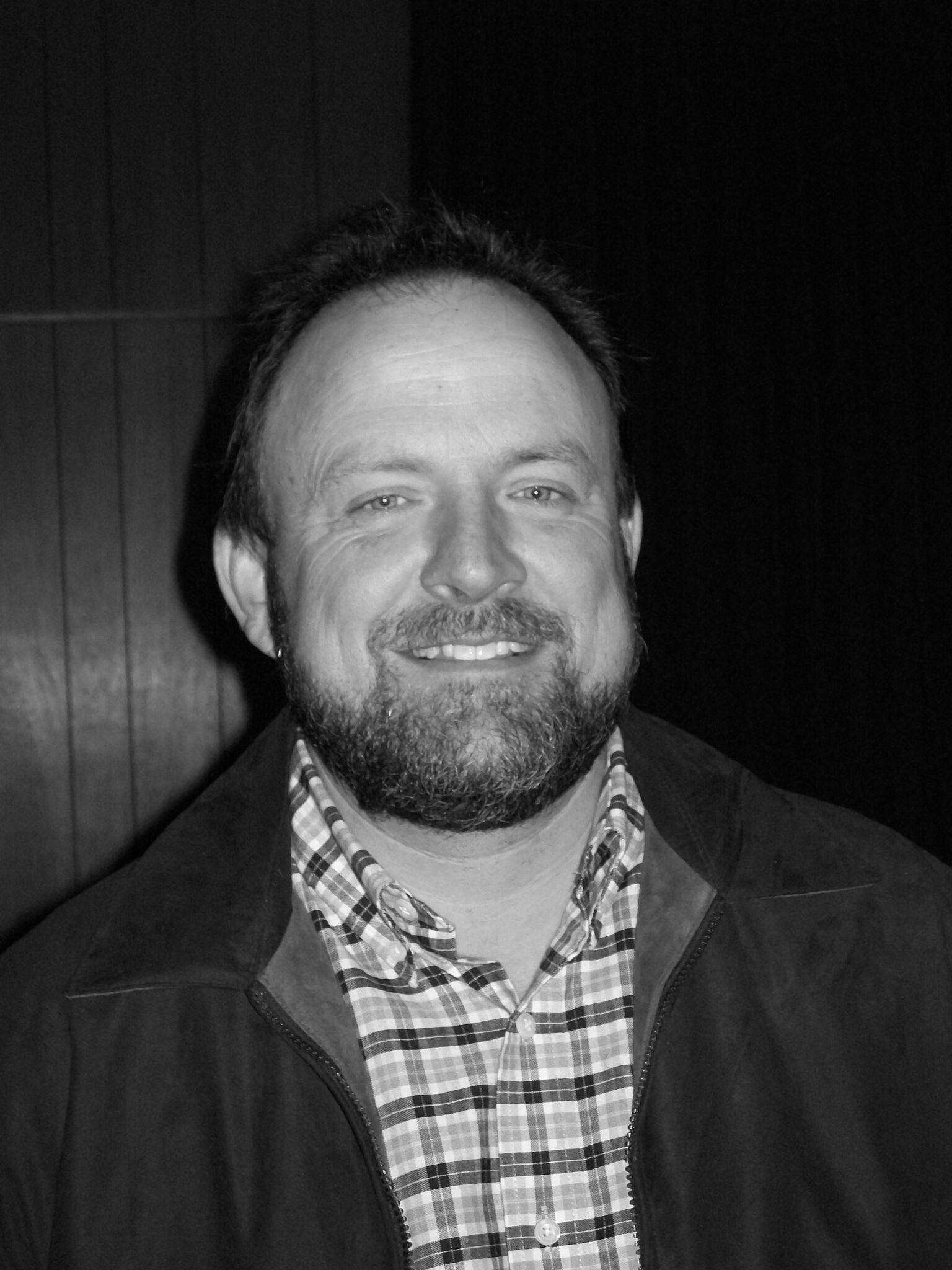“Who’s in charge here?”
Dr. Gary North was fond of asking that question as a way of pointing to the first part of the Biblical covenant. We’d be talking about transcendence at that point. That’s a five-dollar word nerds use to speak of being sovereign over everything. God is transcendent. He is the highest. He is the greatest. There is none like Him.
Psalm 50 says He owns the cattle on a thousand hills, which is a pithy way of saying that he owns all the cattle on all the hills. He owns all the hills and everything else there is to own.
This is the bedrock of what we call Calvinism. Contrary to what you see everywhere on the internet, Calvinism is not chiefly about how sinners get saved. Now, as the kids say, don’t get it twisted: Calvinism does explain that. It faithfully summarizes the Biblical data on the topic. But, this is a by-product of the bedrock idea: God is in charge, here.
Calvin didn’t begin his magnum opus, the Institutes of the Christian Religion, by saying, “Okay, let’s start with Point One of Five: Total Depravity.” Rather, the starting place of his theology was the importance of man knowing what sort of creature he is, and what sort of God created him. For Calvin, the creator was sovereign. That sovereignty eventually extended to the question of the eternal fate of every individual. However, the reason it extended there is because it extended everywhere.
God is sovereign, over everything. There is no place outside His sovereignty, down to electron shells and quarks; to the rise and fall of nations; to the progress of time; to the spinning of galaxies we just figured out how to look at a minute ago. It extends to the number of hairs on your head right now, and how your days will be finished. As Kuyper suggested, there is no place in all creation that the Lord Jesus does not touch and declare, “Mine!”
Christian Reconstructionists believe in this radical rule of God over all things. Because God is in charge, a corollary truth immediately confronts us: no one else can be. It is a stark dichotomy with no wiggle room. God is sovereign. We are not. The Bible does not hint about any sort of “shared power” arrangement. He rules. We follow the rules (or should, at least). Even when God does see fit to grant authority to people over certain areas, that authority is temporary, limited, and subject to certain judgment. He has authority over all authorities. They are his and not their own.
As Mark Rushdoony has pointed out, God’s sovereignty over all things is what undergirds the other pillars of Christian Reconstruction. His authority over ethics and morality gives us Theonomy. His sovereignty over history yields our postmillennial hope. God’s rule over the realm of human relationships, including the persistent question of “the one and the many”, gives us our covenantalism. Even the manner in which we defend our faith is subject to His precepts, and so we promote Presuppositional apologetics.
Calvinism; Theonomy; Postmillennialism, Presuppositionalism; and the pattern of the Biblical Covenant: this is the core of Christian Reconstruction.
As you read what Reconstructionsists write, you’ll hear about these over and over. But that shouldn’t be taken as some sign that it stops there. God’s radical sovereignty over all things means that we also need to explore how to do everything according to His instruction. His rule, and our duty, extends to things like business ownership; wealth management; international diplomacy; the family; education; creative arts; scientific inquiry; technology; domestic policy, sexual ethics; healthcare; and so on.
The ramifications of a Calvinistic view of God are things we like to think about. We think they are really great ideas, and, if pursued in real life, they bless everybody. And, yet, we think it would be horrible for us to force you to agree with any of it. You can be sure we’ll work hard to persuade you. We may even manage to make ourselves a nuisance in that endeavor. Please forgive us. We honestly believe we know where the pure water is, and we love you enough to try to lead you there.
We’re not sovereign over you, though. God is.
This brings us back around to a Calvinistic view of soteriology, or the study of how salvation comes to sinners. Believe it or not, every Christian Reconstructionist worth a plug nickel is passionate about the Gospel of Jesus Christ. It’s not merely that God elects those he will save. It’s also that He’s chosen the means by which He will save them. He’s chosen “the foolishness of preaching” as Paul said. This is the answer to the well-worn objection: “If you believe in predestination, then why preach? God will save who He wants, with or without your efforts.”
God hasn’t merely chosen the ends, but also the means. For instance, He doesn’t need our prayers in order to get things done, but, by the means of prayer, he lets us share even now in His rulership. He doesn’t strictly need anyone making petitions before the throne of grace, but He invites us to the privilege. So also, though He chooses the ones He will save, and needs no help to do it, He has chosen to use our participation as gospel-spreaders to get it done.
This is where Christian Reconstruction stands or falls. If the gospel is not enthusiastically preached, then the whole rest of our program is a non-starter. If we don’t thunder the proclamation of the grace of Christ around the world, then people remain in their sins. They remain under the illusion of self-sovereignty. They go on clinging to the idea that they are in charge of themselves, and that God is not.
People in this condition will not be interested in the immutable, moral standards of Theonomy. They won’t be cheered or buoyed by the thought of Christ’s progressively increasing kingdom. They’re happy with the law and the kingdom they have, because they think they own it.
I had the privilege of hearing Dr. Bahnsen preach once in person at a little church in El Cajon, California in the early 90s. I still remember the theme of his message. As profound as that was, what struck me the most in the moment was the man’s love for Christ and His gospel, which permeated through both his sermon and his demeanor. I’ve read a lot of Bahnsen since then, and I must admit that this doesn’t always translate to the page. That’s no insult, but rather an admission of the fact that the medium of the message really does matter. You had to hear his tone that night in El Cajon. You had to see, at the crescendo of his sermon about the culmination of Christ’s kingdom, the tears welling up in his eyes.
I mention that anecdote to say this: Christian Reconstructionists, first and foremost, should be Gospel people, with the message of the merciful love of Jesus spilling over their lips, because it’s constantly bubbling up from within them. May their bellies be threatening to burst like wineskins, with the only relief being the actual telling of the Good News of Christ to someone who needs to hear it.
Without this Gospel, this power of God unto salvation, the whole Reconstructionist program, like a colossal airplane, will never find a long enough runway to get off the ground. It may rumble forward with thunderous engines revved high, threatening to go somewhere. But it will prove to be more like an ostrich, having the look of a thing that maybe ought to be able to fly, but trapped here with the rest of us, captive to gravity.
May God grant to the Christian Reconstructionist movement a passionate army of fire-breathing friends of sinners. May their message be as winsome to the common folk as it is threatening to all the villains and tyrants. May it comfort, and discomfort, all the right people.
Granted, we need more intellectual leaders like Rushdoony, North, and Bahnsen (and, frankly, we can already spot some of them, who saw where the mantel was dropped and have picked it up). Our greater need is for preachers like Charles Haddon Spurgeon. Theonomy will become yet another tool for tyrants if it is not pursued by humbled sinners, on whose hearts and minds the Torah of Yahweh has first been inscribed. “Kingdom building” will be the battle cry of oppressors from the Right, just like “Do it for the children” from the Left. In our desire to see the enemies of Christ foot-stooled beneath his feet, let’s include ourselves there first. “Thou art the man!”
The first sphere of God’s sovereignty that lies in need of Reconstruction; where the reign of King Jesus needs to find practical expression; and, His visible kingdom should grow in both intensity and expanse over time, is the life of the individual believer. Without this primary, indispensable work of the grace of God, Christian Reconstruction becomes simply another religious program. Let’s not kid ourselves. Minus the indwelling Holy Spirit, none of this is any better than the old monastic rules, or Charles Finney’s guidelines for creating “revival”. Lots of us are homeschoolers, for instance. But Christian homeschooling, minus the transformative grace of Christ’s gospel, can turn tyrannical just as quickly as any Leftist cry for tolerance. Unsaved religionists love rules, and salivate over the thought of holding positions of power. Reconstructionism is not insulated from that. If you’re looking for rules and structure, well, we’ve got some of that.
Reconstruction minus the gospel of grace is simply another species of Power Religion, as Dr. North coined the term. What we need is Jesus, crucified for sinners and raised to new life. Get saved. Turn from your sins and trust in Christ alone. Be born again. Be recreated in His image, spiritually resurrected. Once you’ve done that, or, rather, had it done to you by the Spirit of God, come read our books and listen to our lectures. That hunger and thirst for righteousness you now have: we can give some guidance.
So, yes, Gentle Readers, we are Calvinists. Not that we follow a man, but we’ve found the theological formulation of things to be top-notch. We believe that, apart from the grace of Christ, the heart of man is fallen in every aspect, deceitful and desperately wicked. What else can explain the course of the world? He can’t reverse his condition on his own, because every resource he might marshal to the task is just as corrupt as the stuff he’s trying to clean. When he opens his spigot to fill his mop bucket, only poison and mud flows out.
His salvation must, therefore, come from outside himself. God must bring it to him. But, being under zero obligation to save anyone at all from what they deserve, God is free to bring that salvation to individual sinners based upon his own will. He saves as He pleases. However, when God pleases to save a sinner, He does so entirely. He does not merely open a prison cell door and then walk away. The blood of Christ actually delivers every single one it was meant to deliver. It doesn’t provide nine tenths of salvation to everyone, and then wait on the sinner to make up the last, little bit. It saves.
The grace of Christ overcomes the persistent corruption of the sinner. It wouldn’t “work” otherwise. It’s not that the sinner has no will to make real decisions: it’s that his decision-maker is just as evil as the rest of him, dead in sins and needing resurrection. God doesn’t save us apart from our wills, but He does save our wills first, by replacing hearts of stone with warm, pliable, beating hearts of flesh.
He keeps on saving in the life of the believer. He keeps on delivering. His mercies are new every morning. He brings his own intention to completion. Though the ones being saved stumble along imperfectly, suffering defeats, setbacks, and even tantrums born of frustration and fatigue, yet He doesn’t kick them to the curb. His intention for them, personally, from before the beginning, was to save them: to save them, in fact, from their own failure to do right. They make it through to the end, faithful unto death. And, when they do, it doesn’t prove how awesome they were, but how good He was to them.
The last five paragraphs have constituted a very short, popular-level summary of the five points of Calvinism. There are Calvinists who will read them and hate them for their imprecision and lack of footnotes and proof-texts. I’m okay with that. You can find the books and articles that do all of that, including one in the Amazon Kindle store from yours truly. My plea to the Calvinist who hated that simple explanation is this: Don’t go on to be a Christian Reconstructionist. I mean, you do you, of course, but we’ve got all we ever needed of nitpickers, who turn the mercy of Jesus into a theology exam, and use any set of rules, including Theonomy, to crush people. Go join a Weslyan fellowship somewhere, and work diligently for the restoration of Calvinistic Methodism.
We need Recons who remember where they were when God found them. We need Recons with a present sense of regret over their present sins. Let us have the ones who remain thankful for the evening long ago, when their Savior led His people from the basin of water, like a slave, washing feet of honored guests. This, even though that group turned out to be a table of turncoats; a dinner with deserters; a meal with malcontents.
He could do this because He knew all about sovereignty and patience. He was well-acquainted with the saving God who has an undefeatable plan, and the powerful grace to make it happen.






0 Comments